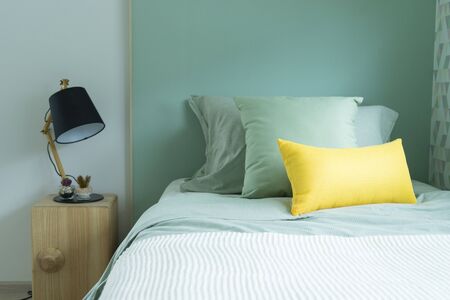Introduction: Embracing Aromatics in British Home Life
Throughout the centuries, British homes have welcomed the comforting presence of incense and aromatic oils. From the fragrant halls of stately manors to the snug living rooms of modern flats, these scents have played a quiet but significant role in our domestic experience. Once a rarity reserved for religious ceremonies or exotic imports, incense and essential oils are now firmly woven into everyday routines across the UK. Whether it’s a lavender diffuser calming the bedroom after a long day or sandalwood incense marking moments of mindfulness, these aromatics help create inviting spaces that reflect both tradition and contemporary style. As we embrace their growing popularity, it’s important to consider how best to enjoy these sensory pleasures safely and stylishly within our unique British context.
2. Selecting the Right Products: Navigating Local Options and Regulations
Choosing the right incense and oils for your British home is more than just a matter of scent or style; it’s also about health, safety, and compliance with UK regulations. With a wide array of products available on the market, understanding what’s inside each product and how it aligns with British standards can help you make informed, safe choices.
Understanding Product Labels
When shopping for incense and oils in the UK, always start by reading product labels carefully. Look for clear ingredient lists and avoid items with vague terms such as “fragrance” or “parfum,” as these often mask synthetic chemicals. Authentic, high-quality products usually specify whether they use natural essential oils, plant-based materials, or synthetic additives.
Key Label Elements to Check:
| Label Element | What to Look For |
|---|---|
| Ingredients List | Detailed breakdown of natural vs. synthetic contents |
| Allergen Warnings | Presence of common allergens (e.g., limonene, linalool) |
| Country of Origin | Preferably UK or EU production for better regulatory compliance |
| Sustainability Claims | Certifications like Soil Association Organic, Fairtrade |
| Safety Instructions | Clear guidance on usage, storage, and disposal |
Navigating British Safety Standards
The UK has specific regulations governing home fragrance products. For example, the General Product Safety Regulations 2005 require that all consumer goods are safe under normal or reasonably foreseeable conditions of use. Incense sticks and oils should be labelled with appropriate hazard symbols if they contain flammable ingredients. Look out for compliance marks such as CE marking (now being replaced by UKCA marking post-Brexit) and ensure packaging includes manufacturer contact details for traceability.
Quick Reference: Common British Certifications and Marks
| Mark/Certification | Description |
|---|---|
| UKCA Marking | Indicates conformity with British safety standards post-Brexit |
| CE Marking | Still recognised for some products during transition period; shows EU compliance |
| BRCGS Certification | British Retail Consortium Global Standards for product safety and quality (mainly for manufacturers) |
| COSMOS/Soil Association Organic | Assures organic origin and ethical sourcing for oils |
Sourcing Locally in the UK: Tips for Quality Assurance
If you’re buying from high street retailers or local markets, ask questions about sourcing and production practices. Many reputable shops are happy to provide details about their supply chains and safety measures. Shopping at established health food stores or specialist aromatherapy shops can also offer greater confidence in product quality compared to unregulated online marketplaces.
Summary Checklist for Safe Selection:
- Always read labels thoroughly before purchasing.
- Choose products with transparent ingredient lists.
- Avoid incense and oils that lack clear safety warnings or usage instructions.
- Prefer locally made or EU-imported items for stricter regulation adherence.
- Look for recognised certification marks relevant to safety and sustainability.
- If in doubt, consult customer service or seek independent reviews from UK users.
Selecting incense and oils responsibly ensures your enjoyment doesn’t come at the expense of health or safety—yours or your home’s. By staying aware of local options and regulations, you can create a relaxing atmosphere with confidence and peace of mind.
![]()
3. Safe Usage Practices: Ventilation, Placement, and Timing
Ensuring the safe use of incense and essential oils in British homes starts with practical considerations tailored to typical UK house designs and our famously unpredictable weather. Good ventilation is crucial: many British homes, especially older terraces or flats, can be prone to poor airflow. Whenever possible, open a window slightly—even on a chilly day—to help dissipate smoke or strong vapours. If that’s not feasible, consider using a kitchen or bathroom extractor fan for short periods while burning incense or diffusing oils.
Placement is equally important. Incense burners should always be placed on a stable, heat-resistant surface away from curtains, soft furnishings, and draughts. In smaller rooms common in Victorian or Edwardian properties, position your burner centrally but safely out of reach of children and pets. For oil diffusers, avoid placing them directly under shelves or close to electronics—oil residue can accumulate and cause staining or damage over time.
Timing also plays a key role in safety and comfort. Because British weather often leads us to keep windows closed, try burning incense or running diffusers during periods when you can guarantee some ventilation—perhaps after returning home from work when it’s easier to monitor. Don’t leave them unattended, especially if you’re heading out or heading to bed. In winter months, consider using shorter burn times and lower concentrations of oils to prevent stuffiness and maintain good indoor air quality.
By combining careful ventilation strategies, thoughtful placement, and sensible timing, you can enjoy the benefits of incense and oils without compromising on safety or comfort—whatever the Great British weather brings.
4. Health Considerations: Asthma, Pets, and Family Wellbeing
When introducing incense or essential oils into British homes, it is essential to consider the health and wellbeing of all household members. The UK’s demographic landscape includes a significant number of individuals with respiratory conditions such as asthma, as well as families with children, elderly relatives, and pets. These groups can be particularly sensitive to airborne particles and strong fragrances.
Asthma and Respiratory Concerns
According to Asthma UK, over 5 million people in Britain are affected by asthma. Incense smoke and volatile organic compounds (VOCs) from oils can act as triggers for asthma attacks or exacerbate chronic respiratory issues. Common symptoms include coughing, wheezing, or shortness of breath. For those living in older British housing stock—often characterised by less efficient ventilation—the impact can be more pronounced. It is advisable to:
- Use incense and oils sparingly in shared spaces
- Ensure windows are open or ventilation is active during use
- Select low-smoke or smokeless incense types
- Avoid usage entirely in rooms frequented by asthma sufferers
Children and Elderly Residents
Young children and the elderly have more sensitive respiratory systems and may be more susceptible to irritation from incense smoke or strong scents. Prolonged exposure can lead to headaches, dizziness, or allergic reactions. It is best practice to:
- Limit incense use in bedrooms or play areas
- Opt for essential oil diffusers with automatic shut-offs to avoid overexposure
- Monitor for any adverse reactions and discontinue use if symptoms appear
Pets: Dogs, Cats, and Small Animals
British households often include beloved pets whose olfactory systems are far more sensitive than humans’. Certain essential oils (e.g., tea tree, eucalyptus) are toxic to cats and dogs even at low concentrations. Birds and small mammals are particularly vulnerable.
| Pet Type | Risks | Recommended Actions |
|---|---|---|
| Cats & Dogs | Toxicity from specific oils; respiratory distress from smoke | Avoid toxic oils; keep pets out of scented rooms; ensure thorough ventilation |
| Birds & Small Mammals | High sensitivity; risk of fatal respiratory issues | Avoid all incense/oil use near cages; prioritise fresh air circulation |
General Family Wellbeing Tips
- Always read product labels for allergen information relevant to UK regulations (e.g., CLP labels)
- If anyone in your household belongs to a sensitive group, consult a GP before regular use of scented products
- Pursue alternatives such as natural ventilation or unscented air purifiers when possible
Towards Safer Scent Practices at Home
The British approach values both tradition and safety—balancing atmospheric enhancement with health protection ensures that everyone at home can enjoy a pleasant environment without compromise.
5. Enhancing Style: Integrating Scents into the British Home Aesthetic
Incorporating incense and oils into your home isn’t simply about scent—it’s also an opportunity to complement your interior decor and reflect your personal style. Whether you live in a traditional Victorian terrace, a cosy cottage, or a sleek modern flat, it’s possible to enjoy these fragrances tastefully and safely while enhancing the overall aesthetic of your British home.
Victorian & Period Properties
For homes with ornate fireplaces, high ceilings, and period features, consider using classic brass or ceramic incense holders that echo the heritage of your interiors. Place them on mantelpieces or sideboards where they can be both functional and decorative. Opt for traditional scents such as sandalwood or lavender, which evoke a sense of timelessness and blend seamlessly with antique furnishings. Essential oil diffusers made from natural materials like glass or stone also suit these settings, adding a subtle touch of elegance without clashing with historical charm.
Cottages & Country Homes
Cottage living is all about comfort and warmth. Select rustic wooden trays or hand-thrown pottery burners to display your incense or oils on windowsills or coffee tables. Scents like rosemary, thyme, or fresh linen can enhance the homely atmosphere associated with rural life. Positioning your fragrances near entryways or hearths will create a welcoming impression for guests while keeping safety in mind by avoiding clutter and flammable materials nearby.
Modern Flats & Urban Living
In contemporary spaces—often smaller and more minimalist—opt for streamlined metal or matte ceramic diffusers that complement clean lines and neutral palettes. Choose crisp or energising scents such as eucalyptus, bergamot, or citrus blends that won’t overpower limited square footage. Utilise floating shelves or discreet corners to keep incense and oils accessible yet unobtrusive. For added sophistication, coordinate the colour of holders with accent pieces in your lounge or bedroom.
Blending Scents with Decor
Regardless of property type, treat incense holders and oil diffusers as part of your decorative scheme rather than afterthoughts. Mix-and-match textures (for example, pairing sleek glass diffusers with woven mats) to add visual interest. For communal areas, consider unscented candles alongside lightly fragranced oils for layered lighting and aroma effects without overwhelming the senses.
Practical Tips for Stylish Integration
– Always position burners away from curtains, bookshelves, and soft furnishings.
– Rotate scents seasonally: opt for florals in spring/summer; spicy woods in autumn/winter.
– Choose refillable diffusers to reduce waste and maintain a consistent look.
– Use trays or coasters under burners to protect surfaces and catch any ash or drips.
– Store spare incense sticks and oils in decorative boxes that complement your decor theme.
By thoughtfully selecting both the fragrances and their presentation, you can make incense and oils an integral part of your home’s character—whether you favour classic British cosiness or modern urban chic—while maintaining safety and practicality at every step.
6. Storage and Disposal: Environmental and Legal Guidelines
Proper storage and disposal of incense and essential oils are crucial for maintaining both safety within the home and compliance with UK environmental regulations. Incorrect handling can present fire hazards, health risks, or contribute to environmental harm. Here’s how to manage these products responsibly in British households.
Safe Storage Practices
Incense sticks, cones, and resins should be kept in a cool, dry place away from direct sunlight, heat sources, and any naked flames. Use airtight containers or original packaging to reduce moisture absorption and prevent accidental ignition. Essential oils require extra care: store them upright in dark glass bottles with tightly sealed caps, ideally inside a cupboard or box out of reach of children and pets. Always ensure labels remain intact for easy identification, as some oils can look similar but have very different properties.
Avoiding Cross-Contamination
Keep incense separate from foodstuffs and avoid storing essential oils near medicines or cosmetics unless they are clearly labelled. This minimises the risk of accidental ingestion or misuse, especially important in homes with children.
Environmentally Responsible Disposal
Dispose of spent incense ash once completely cooled; it can often be added to garden compost or disposed of in household waste. For unfinished incense or oils past their best-before date, do not pour liquids down sinks or drains as this can pollute waterways. Instead, take small amounts of essential oils to your local Household Waste Recycling Centre (HWRC), following guidance for chemical disposal. Check with your local council for any specific arrangements—some areas provide special bins for hazardous household waste.
Legal Considerations
In the UK, improper disposal of chemical substances, including essential oils, is regulated by environmental law under the Environmental Protection Act 1990. Fines can apply if oils or hazardous materials are found in general waste streams or sewers. Always check packaging for disposal instructions and consult your local authority’s website for up-to-date advice on safe disposal routes.
Summary Advice
By storing incense and oils securely and disposing of them via correct channels, you not only safeguard your home but also help protect the environment in accordance with British legal requirements. Practising responsible stewardship ensures these aromatic traditions remain safe and sustainable for all.
7. Troubleshooting and Frequently Asked Questions
Addressing Common Concerns
Even with the best intentions, using incense and oils at home can sometimes lead to practical issues. Below, we tackle some of the most frequent questions and challenges faced by British households, offering clear solutions and helpful UK-specific resources.
What should I do if lingering smells become a problem?
If incense or oil scents persist longer than desired, start by ventilating your space—open windows or use extractor fans where possible. Activated charcoal air purifiers can be effective for absorbing stubborn odours. Baking soda placed in bowls around the room also helps neutralise strong scents. For more detailed guidance, check the NHS Home Hygiene advice.
How can I prevent smoke alarms from being triggered?
Smoke alarms are crucial for safety, but incense smoke may occasionally set them off. To reduce this risk, always burn incense away from direct airflow to alarms and ensure adequate ventilation during use. If you find your alarm is overly sensitive, consult your manufacturer’s manual—never disable a smoke alarm for convenience. For more information, refer to the London Fire Brigade Home Fire Safety guide.
Are there local council rules about burning incense or oils?
Council regulations on indoor burning may vary, especially in flats or rental properties. Some councils restrict burning anything that could affect neighbours (like in shared housing), particularly regarding nuisance odours or fire hazards. Always check your tenancy agreement and consult your local council’s website—for example, Find Your Local Council.
Can incense or oils trigger allergies or health issues?
Sensitive individuals may react to certain fragrances or smoke. To minimise risks, opt for natural ingredients and avoid burning near those with respiratory issues. The Asthma UK Fragrance Triggers Guide offers further advice.
If you have other questions…
If you encounter problems not covered here, seek expert advice from reputable UK sources like Citizens Advice (Citizens Advice Consumer Help) or speak with your local fire service for fire safety queries. Staying informed ensures a safe and stylish home environment when enjoying incense and oils.


